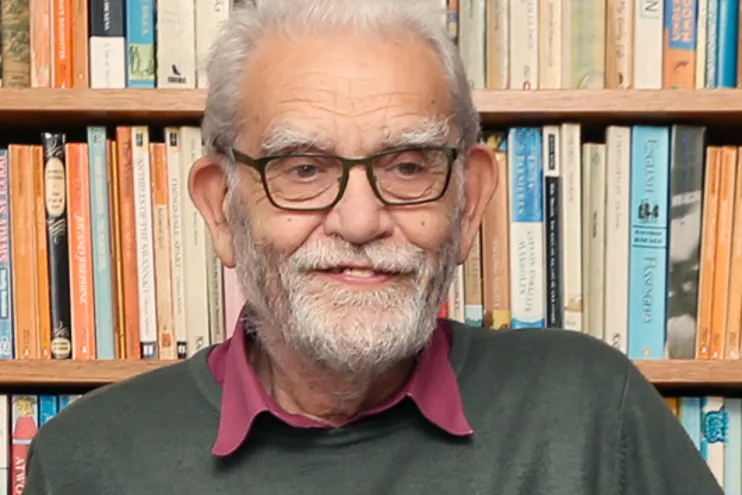Bev Pardoe: Sixty years with the IET

Bev Pardoe has been a member of the IET for 60 years, marking a career shaped by wide-ranging experience across continents and sectors. Throughout, he has remained driven by curiosity, a practical mindset, and a strong commitment to learning and sharing knowledge.
“I don't see my career as a series of major turning points”, Bev says. “It was more a set of experiences that affected my understanding and maturity. I’ve always been driven, competitive - that came from growing up in relative poverty but with a spiritually rich environment. I didn’t want to repeat the circumstances I was born in.”
While studying science at university, Bev joined the University Air Squadron on a whim. “They actually paid us to learn to fly. It was a wonderful experience, but also one that taught me a lot about discipline and hierarchy. It shaped how I approached things later on.”
After graduating, Bev made the transition from science to engineering, becoming an associate member of the Institution of Electrical Engineers (IEE), which confirmed for him that he had made the shift successfully. “That was important. It substantiated me as an engineer.”
Bev’s early career took him from the UK to the USA, where he became the youngest senior engineer at AVCO in Cincinnati, working on military radios during the Vietnam War. “There was a culture of trying things. If you tried and failed, you were more respected than if you avoided doing anything risky.”
But the political context made him uneasy. “I was effectively helping the war effort. I was classified 1A for a month. That was enough for me to know I couldn’t stay.”
Australia followed, where Bev worked on missile systems before shifting into academia. “I'd always enjoyed explaining things to others. I found I learnt more by trying to explain something to someone else, so education didn’t feel like a huge step.”
Bev moved into academia full-time in Australia and later at the University of Salford in the UK, where he became Dean of Engineering. “I stood as the radical candidate and won. That changed everything. I had to learn how to manage and navigate university politics, but I was determined to guide the department in a way that worked for engineers.”
He later retired and focused on a side business that had been running alongside his academic work: designing and producing vibratory feeders used in the pharmaceutical industry. “My proudest piece of work was redesigning one of the machines to be half the weight. That took me right back to my original training in physics, forces, and structure. It was a nice swan song.”
Over the years, Bev has witnessed huge changes in engineering practice. “We used to have a whole team, from technicians and draughtsmen to layout people. Now, with simulation tools, one person can do the work of six. There’s been both deskilling and upskilling. The engineer needs different skills now.”
He’s optimistic about the future. “The opportunities are enormous. To start now, with all the support available, would be fantastic.”
But he is also thoughtful about how engineering education should evolve. “You can’t teach experience. You can only create opportunities for people to learn. Engineers today need to understand principles, yes, but also things like negotiation and contracts. And they need to be open-minded, willing to take risks, and learn from failure.”
Bev has been with the IET (originally the IEE) since the start of his career. “Becoming an associate member early on really mattered to me. It gave me professional standing.” He’s seen the institution change over time, particularly with its shift from the Institution of Electrical Engineers to the Institution of Engineering and Technology, which he deems “significant”. “It changed the focus from the people (engineers) to the activity (engineering). It also broadened the membership.”
He sees professional bodies like the IET as essential. “They give you recognition. They allow you to meet others at your level and share ideas without competition. The peer review system is very important.”
After six decades, Bev remains a devoted advocate for engineering. “I’ve always believed in sharing knowledge. I don’t see it as giving something away because you learn more in the process. And that’s the spirit I think young engineers need to have.”
